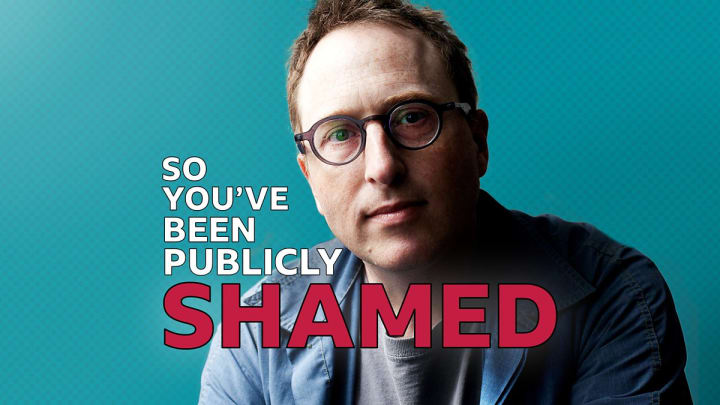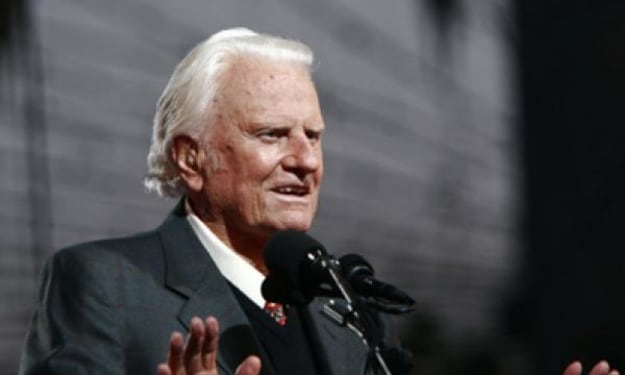A Storm in a Yorkshire Teacup
The sorry state of modern political (and general) discourse

This week, one of my all-time favourite brands, Yorkshire Tea, were the innnocent victims of the twitter mob. This arose when the newly-appointed Conservative party chancellor, Rishi Sunak, tweeted a photo of himself making a cup of Yorkshire Tea in celebration of his promotion.
Before long, much of the online world turned on Yorkshire Tea, accusing them of endorsing Sunak and vowing to never use their products again. Yorkshire Tea politely pointed out that there was no endorsement; Sunak simply happened to be drinking Yorkshire Tea in the picture. Others have pointed out that it may well be an attempt to show support for local, British business, as his constituency, Richmond, isn't far from Harrogate, where Yorkshire Tea is based. What is surprisingly very moving about all this, however, is the statement from Yorkshire Tea describing how they were hurt by the comments, but as a team they had each other to get them through it, where as others aren't always so lucky. And we must try to be kind. This obviosuly echoes the recent death of Caroline Flack and the backlash against the way she was shamed by the media prior to her death. Now, I've written in a previous article about when marketing departments reference celebrity deaths with disastrous consequences (looking at you, Cheerios' Prince tweet), but I wouldn't say that this is an example of that at all. Most of all because Yorkshire Tea did not in fact actually reference Caroline Flack; it was others who drew the similarities. And it's a poignant point about just how ridiculous and indeed awful online shaming can be. And it can of course be much worse. Misunderstandings such as what happened to Yorkshire Tea have lost people jobs and even lives. If anyone doesn't believe me, I urge you to read the work that journalist Jon Ronson (below) has done on the subject, where you will find a long list of examples.

Shaming is an ugly aspect of the online world and it's creeping more and more and more into actual discourse, including, quite prominently, politics. Now, before I woke up this morning and saw what had happened here when a UK politician tweeted a picture of some tea, I was planning on writing an article about US politics. But what I was going to say only ties in to what I've said already. First of all, allow me to please admit that I don't have a brilliant grasp on the mechanics of US politics, what I'm offering is a mere comment on the discourse, and what it says about our society in general. I can't understand why any ordinary person would want to be a politician these days, because today the job comes with a guarantee that the worst things you've done in your life will become very public knowledge and used against you, and, furthermore, perfectly normal things you've done will be twisted to suit an agenda and then used against you as well. So, to repeat, I can't understand why any ordinary person would want to be a politician these days. I can, however, understand why Donald Trump wanted to be a politican these days. I think he saw it as an opportunity. The media couldn't have found more dirt on Donald Trump if they tried. He's Donald Trump! And, yet, in 2016, it was he who won. Not the left-leaning Hillary Clinton who would've been the first female President. More than he appealed to actual racists, sexists and bigots, I think what really swayed it for Trump was the people who voted for him because they aren't all those things and were sick of being labelled as such by hate mobs who misunderstand their views. It's a big jump to respond by voting for Trump, but I think that is what happened. Perhaps a lot of people took a gamble that a lot of what he said he was going to do would never happen, and he may be a good President, or alternatively, if he was terrible, it would be the kick in the teeth that the Democratic party, and the left, needed.

And, fast forward four years later, I think it's fair to say that, from where I'm standing, the latter has been the case. Trump has remained Trump. And I was hopeful when I saw that Bernie Sanders was doing well, because I thought he would have been a much more formidable opponent in 2016. I liked that he too was more of an outsider but without the divisive social policies of Trump. And if he became the candidate, maybe the Democrats would have a chance. But then I watched the Democratic debate, and all my hopes that the party had perhaps learned something in the last four years about how to have a political discussion went out the window. They were exercising ad hominem and shouting over each other like children. Mike Bloomberg summed it up when he said 'I can't think of a way that it would make it easier for Donald Trump to get re-elected than listening to this conversation.'
And parallels can be drawn over here across the pond, with the Conservatives having a landslide victory because the Labour Party refused to promise to deliver Brexit, which is what people voted for. I predicted as much but was still shocked to see how many Labour heartlands elected Tories.
And it happens outside politics. I think people have started to get a kick out of how much they can shame others and claim the moral highground. Society has become a mess of shouty statements and discourse is coming under threat from this new approach. It has made universities quite toxic environments for people (when ironically it claims to do the opposite), and I've seen it creeping into everyday conversations. It's not the first time I've written an article calling for a reform in discourse, political or otherwise, but I feel the need to keep doing it when I see things like this in the news.
I will leave you with a recommendation, if you want to see a genuine, polite debate. The debates about the existence of God between Bertrand Russell and Frederick Copleston (available on YouTube) are almost unbelievable in the respected way in which each party argues their case and hears the other out. It might not be as entertaining as modern discourse, but should this stuff really be entertaining? I don't think so. Not when this toxic approach causes the pain that it does. And, by the way, I have it on good account that both men enjoyed a cup of tea. Maybe their discussion took place over one.

Oh and one more thing, to return to the beginning, one of the things Yorkshire Tea pointed out to the hate mob was that politicians often tweet about drinking tea, and that Jeremy Corbyn had tweeted himself drinking Yorkshire Tea in the past. So, there you have it, these two men on either side of the politcal spectrum today both enjoy a cup of tea. Maybe people need to start again by focusing on what brings them together, not what tears them apart.

Anyway, my kettle has boiled and I am definitely in need of a cuppa myself. Have a nice day x
About the Creator
Matty Long
Jack of all trades, master of watching movies. Also particularly fond of tea, pizza, country music, watching football, and travelling.
X: @eardstapa_






Comments
There are no comments for this story
Be the first to respond and start the conversation.